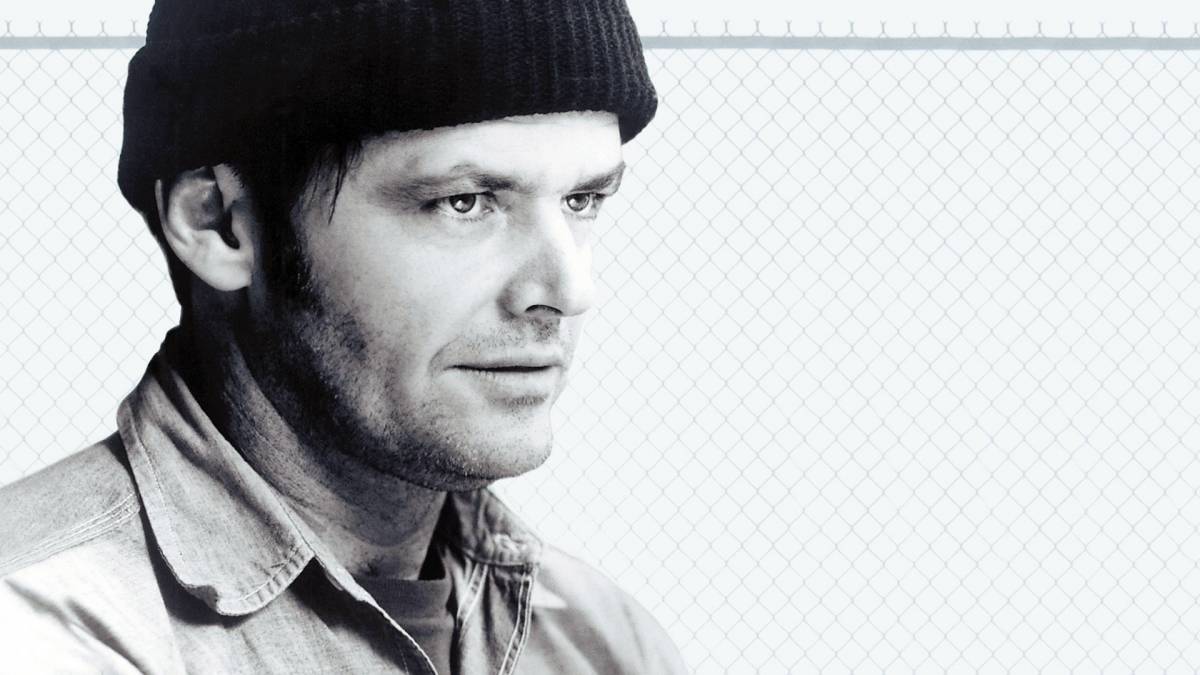Masterfully directed by the late Miloš Forman, and with one of the best casts of any film in this decade, One Flew Over the Cuckoo’s Nest is still an immeasurably powerful viewing experience. Yet the fact that it’s just one of many outstanding movies released in 1975 is also worth noting.
In that single year, we got movies like Jaws, Rollerball, Night Moves, Dog Day Afternoon, Rocky Horror Picture Show, and several more. It was a busy time for seemingly every type of movie you could ever imagine. One Flew Over the Cuckoo’s Nest was just one of them. Yet this movie continues to be considered one of the finest of its decade. That’s saying a lot, and it’s not hard for me to see why it’s still a powerhouse of acting, direction, production design, cinematography, and writing.
One Flew Over the Cuckoo’s Nest is based on Ken Kesey’s seminal 1962 novel, with both that book and the movie keeping the plot about a man named McMurphy (Jack Nicholson, who won an Oscar for this) and his confrontations with the nurse (Louise Fletcher in the Oscar-winning role of Nurse Ratched) who runs the ward of the mental institution he has been sent to. McMurphy is another Nicholson character who has been infused with both Nicholson’s unique acting style, and the detail found in the source material that paints a portrait of a man who has been coasting for a long time. He’s just here for a good time, and he’s willing to work the system when he can.
Nearly sent to a prison farm for statutory rape, along with a host of other malcontent-themed charges, McMurphy believes he’s beaten the system by feigning insanity. Instead, he’s forced into a brutal battle of wills with Ratched, who exercises an unflinching, arguably cruel degree of control over her patients. Most of them can leave anytime they want. This alone infuriates McMurphy, who suddenly finds himself caring about these people. It’s not a big, sweet-but-occasionally-bleak bid for redemption, but it does become a natural part of this character’s journey.
However, McMurphy is obviously not doing this for purely moral or noble reasons. There’s an inherent lust for life in One Flew Over the Cuckoo’s Nest that drives McMurphy to greater and greater extremes in his bid to drive Ratched out of her job. There’s just also the desire to restore dignity and confidence to a group of unhappy, somewhat unhinged men. His scenes in particular with Billy Babbit (a young, riveting Brad Dourif) and “Chief” Bromden (Will Sampson) reveal a man far more complex than the self-serving agent of chaos we meet at the beginning of the film.
That complexity beneath the surface of this story is really what continues to give One Flew Over the Cuckoo’s nest meaning to mix with its entertainment, which is also still considerable. The dialog never fails to be as engaging as it is useful, and the movie’s lighter moments feel as they should: Like blasts of sunshine and warmth in an increasingly cold, sterile world. One Flew Over the Cuckoo’s Nest succeeds in its moments of lopsided optimism without ever shying away from ugly people doing ugly things. You could even say One Flew Over the Cuckoo’s Nest is an impressive encompassment of what it means to be a human being.
No one is simple in One Flew Over the Cuckoo’s Nest. There are no easy answers or quick victories. It’s just the relentless march against the forces that dictate our lives. We can only try to win as many skirmishes along the way as possible, and to care for the people around us if we can do anything to help them. Jack Nicholson as Randal “RP” McMurphy is a testament to this in all his slovenly, morally questionable fascination.
READ NEXT: Apollo 13 (1995) | Movies To See Before You Die
Some of the coverage you find on Cultured Vultures contains affiliate links, which provide us with small commissions based on purchases made from visiting our site.

